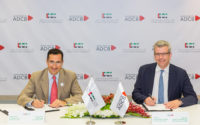The UAE’s Private K-12 Education Market Will Grow By Approximately 40% In The Next 5 Years With Further Consolidation And Competition, BCG Study Finds
According to a new report today by The Boston Consulting Group (BCG), entitled ‘Where to Invest Now in the GCC Private Education’, the UAE’s private K-12 education market valued at $4.4 billion in 2017 is poised to grow to $7.1 billion by 2023. Across the GCC, the private education market is becoming a magnet for investors, and rightly so, as it is expected to double over the next five years. Despite the fact that strong growth has been predicted across the region, investors must fine-tune their strategies to account for the shifting circumstances before committing to an investment opportunity.
The report identified four drivers of growth in private education, affecting markets across the GCC:
Shift towards Private Schools: At $11,000 per student per annum, private school spending is higher in the GCC region than in OECD counterparts. Parents across the region are becoming increasingly willing to pay for private schools that provide differentiated offerings and improved outcomes—and this trend will likely grow now that governments are beginning to publish performance ratings for all schools.
Tuition Fees: Across the GCC region, tuition fees for private education will continue to rise 2% to 4% per year. However, tuition fees are rising at a slower rate than in recent years owing to tighter regulations and an economic environment that limits consumer spending. Expatriates are also facing increased financial pressure as employers have begun to scale back their tuition-reimbursement packages. Some governments have placed caps on tuition hikes: in recent years, Kuwait has limited tuition hikes by 0% to 3%, and the UAE and Bahrain recently set a limit of 5%, linked to the education inflation index and schools’ performance.
Population Growth: The student-aged population (age 3 to 17) is expected to grow at a Compound Annual Growth Rate (CAGR) of 1% to 3%. The expatriate population is expected to grow even faster than national populations, and expatriates attend private schools.
Enrollment Growth: Private school enrollment at the primary level and above is high throughout the GCC and expected to remain steady. Enrollment rates at the preschool level (ages 3 to 6) are growing, most notably in Saudi Arabia, which has the largest overall population in the GCC region and the lowest kindergarten enrollment rate (less than 20% kindergarten enrollment in Saudi Arabia versus 60% to 90% in the rest of the GCC).
“New developments, such as evolving demographics, government interventions, and regulatory issues, are reshaping the complex private education market within each country in the GCC. As the potential for growth in the private education market varies significantly from country to country, it is important for investors to understand the size of each market and its potential for growth in the coming years,” said Dr. Leila Hoteit, Partner and Managing Director at The Boston Consulting Group.
A Deep Dive into the Growth of the UAE Private Education Market
The private K-12 education market is most mature in the UAE, and the Dubai market is the most consolidated across the GCC, with 25% of private K-12 schools owned by GEMS Education. Although there is high market saturation across the Emirates with 90% of Dubai and Sharjah students and 65% of Abu Dhabi students enrolled in private education, the country’s private school market is still expected to grow.
The UAE’s population is predominantly expatriate, and in Dubai, the number of expatriates is expected to experience further growth with the launch of Expo 2020 and other mega-projects. However, some expatriates have begun.







